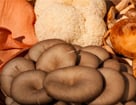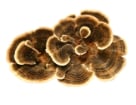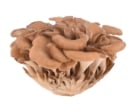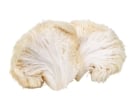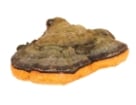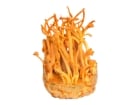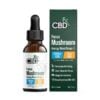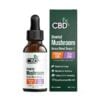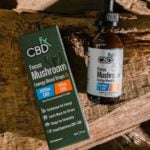
Medically reviewed by
Dr. John Rackham
Written by Clay Steakley
Updated on February 24th, 2022
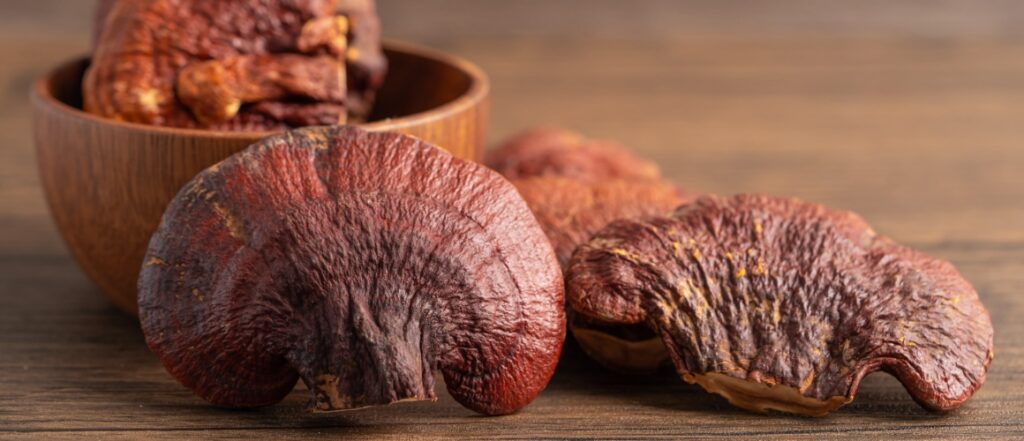
Also known as the “mushroom of immortality[1],” the reishi mushroom has been revered around the world for 4,000 years. Where traditional medicine relied upon reishi to treat infections, fight aging, and boost the immune system, modern science is finding that this humble mushroom possesses a host of beneficial properties.
What is it about reishi that has made it so respected for so many centuries? What’s the science behind the reishi legends? We’ll look at why reishi mushrooms do what they do, and how they can even elevate your CBD experience.
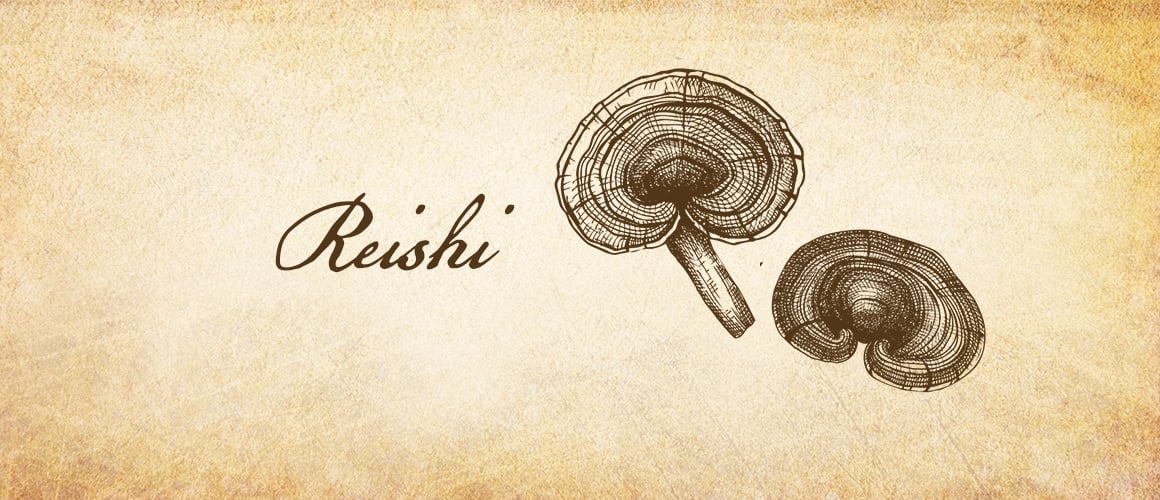
Reishi Mushroom in Traditional Medicine
Reishi mushrooms can be found in temperate and tropical forests across Asia, Europe, and North and South America, and the cultures of all these regions have always looked to the ganoderma lucidum mushroom for medicinal aid.
The earliest written records about the use of reishi mushrooms as medicine date back 2,000 years to China. Traditional Chinese medicine considers the reishi to be a type of Fu Zheng, or treatment for overall health, strength, and longevity.
Traditionally used for the heart, asthma, arthritis, and much more, the reishi mushroom was naturally highly coveted. Reishi is also pretty rare, which made the mushroom very expensive and very exclusive for centuries.
However, in the 1980s, Japan’s Shigeaki Mori[2] developed a process to cultivate reishi, making the popular mushroom much more accessible and affordable. Since then, the popularity of reishi mushrooms has spread far and wide.
Reishi and Research
Fortunately, modern science is beginning to catch up with ancient wisdom, conducting serious research into the properties and benefits of traditional remedies like mushrooms. With reishi being one of the most widely used mushrooms, it’s only natural that scientists want to know how it works.
Here’s some of what we’ve learned about reishi mushrooms.

Reishi as Immune Support
Adaptogenic mushrooms, like the reishi mushroom, are powerful because of the polysaccharides and triterpenes within them. Polysaccharides like beta glucan have been shown to enhance immune response[3], and the mushroom ganoderma lucidum (reishi mushroom) is rich in them.
Triterpenes are a type of compound called a terpenoid that is closely related to the terpenes we look for in CBD for the Entourage Effect (more on that below). Triterpenes and terpenes are a little different from one another (terpenes are hydrocarbons while terpenoids come about through the oxidation of terpenes), but they are just as valuable in their adaptogenic potential.
Nearly 20 years of studies on reishi mushrooms show that these mushrooms demonstrate real potential to support our immune response[4] through beta glucans and the anti-inflammatory properties of the reishi mushroom.

Reishi as Anti-Inflammatory
Reishi mushrooms are rich in antihistamines and other anti-inflammatory properties. These mushrooms have been studied for their effect on fighting allergic reactions[5], and traditional medicine uses the reishi mushroom to soothe discomfort from headaches, gout, and arthritis.

Reishi as Antioxidant
When it comes to natural antioxidants and anti-inflammatories, the reishi mushroom is a star player. The antioxidant properties of the reishi mushroom make it useful in battling free radicals — the molecules that cause oxidative stress on our tissues, skin, and even DNA.

Reishi for Energy
The same elements that make the reishi mushroom such a useful antioxidant (polysaccharides and triterpenes), also seem to make the mushroom a powerful tool for helping us fight through fatigue. Studies have shown[6] that these mushrooms have the potential to decrease fatigue and even increase endurance while also helping our bodies use oxygen more efficiently.

Reishi as Adaptogen
There’s a lot of talk today about adaptogens. What are they, anyway?
Adaptogens[7] are natural compounds that can help your body adapt to stress, including biological, chemical, and physical stress. They were first named by the Russian scientist Nikolai Lazarev, who was looking for ways to increase vitality in athletes and soldiers.
Reishi mushroom is a particularly potent adaptogen. One of the ways reishi helps us manage and adapt to stress is through its support of our adrenal glands, which in turn release cortisol to help us respond to stress.

Reishi as Nootropic
Here’s another new mystery term. Nootropics are believed to help improve and focus our cognitive function by stimulating growth and repair of nervous system cells, fighting brain cell inflammation, and more.
We already know that reishi mushroom has been used to help with our minds, moods, focus and more for centuries. This may be why Reishi[8] is considered a powerful nootropic.
Caution: While using medicinal mushrooms is generally considered safe, reishi mushrooms have been associated with side effects, such as upset stomach/distress and possibly detrimental effects on the liver. It is not known if the extract itself being used in the studies could’ve been the culprit, as the same effects were not seen after ingesting the whole mushroom. We recommend talking to your doctor before trying any supplement, especially if you have a history of liver or kidney disease.
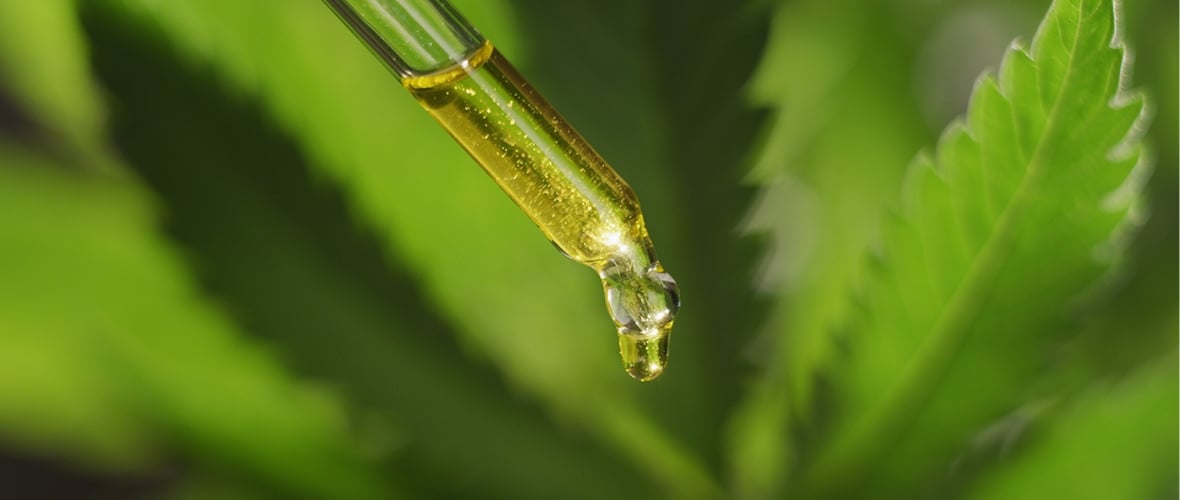
Taking Reishi Mushroom and CBD
Okay, so here you are on our CBD blog reading about mushrooms. Why? Well, it turns out that when you combine the therapeutic properties of CBD with those of medicinal mushrooms, like reishi mushroom, you end up with some pretty great results — which is why we’ve created our Mushrooms + CBD Collection!
Why? Well, let’s look at how CBD works with our bodies.
CBD is short for cannabidiol, one of hundreds of compounds found in the cannabis plant known as cannabinoids. CBD and other cannabinoids, like CBG, CBC, and CBN interact with receptors in a system in our bodies known as the endocannabinoid system.
The endocannabinoid system is integrated with our central and peripheral nervous systems, as well as tissues and systems in our body that regulate mood, sleep, immune response, and more. When a cannabinoid interacts with a receptor in the endocannabinoid system, it imparts therapeutic effects.
Where does reishi mushroom come into play? Consider our new Unwind Mushroom + CBD Drops: CBN Relax Blend. Reishi and CBD work together, along with other useful natural supplements, to create a deeply relaxing experience. This happens through the interaction of these important factors.
- Broad spectrum CBD contains cannabinoids, terpenes, and flavonoids from the cannabis hemp plant. However, all detectable traces of THC have been filtered out (as well as a few other compounds in the process). Still, there are plenty of cannabinoid compounds present to trigger the Entourage Effect, which causes the various compounds to actually boost each other’s effectiveness.
- Reishi brings its natural stress-relieving effects to the party, with the adaptogenic properties of the reishi mushroom blending with and enhancing the soothing effects of the CBD.
- CBN (cannabinol) is commonly known as the “ultimate relaxation cannabinoid,” and is the perfect addition to this restful mushroom product.
- The mushrooms, turkey tail and maitake, enhance overall wellness and immunity.
The result is a healthy and effective way to unwind at the end of a long day.
Psilocybin? Reishi vs “Magic” Mushrooms
The fungus ganoderma lucidum (reishi) is not a psychedelic mushroom. These mushrooms don’t possess the psychoactive, hallucinatory properties of “magic” mushrooms or “shrooms.” Similarly, CBD products are not psychoactive and do not cause a euphoric experience.
In short, all the ingredients we use, from CBD to mushrooms like reishi, are chosen for their wellness benefits alone.
Reishi, CBD, and Your Health
From ancient medicine to modern science, reishi has withstood the test of time. This powerful little mushroom is a kind of wellness multi-tool, helping body, mind, and spirit to stay healthy and cope with the unavoidable challenges of life, from stress to illness.
We think you’ll find reishi to be a useful addition to your own wellness toolkit, especially when this healthful mushroom is combined with the trusted therapeutic power of CBD.
Give reishi a try, and let us know what you think!
Test the soothing power of this mushroom with our Unwind Mushroom + CBD Drops: CBN Relax Blend!
- Memorial Sloan Kettering Cancer Center, “Reishi Mushroom.” https://www.mskcc.org/cancer-care/integrative-medicine/herbs/reishi-mushroom. 5 February 2021.
- Gale Encyclopedia of Alternative Medicine, “Reishi Mushroom.” https://www.encyclopedia.com/medicine/encyclopedias-almanacs-transcripts-and-maps/reishi-mushroom.
- Grant Tinsley, Healthline. “6 Benefits of Reishi Mushroom (Plus Side Effects and Dosage).” https://www.healthline.com/nutrition/reishi-mushroom-benefits. 31 March 2018.
- Yihuai Gao et al, Clinical Trial, Immunological Investigations. “Effects of ganopoly (a Ganoderma lucidum polysaccharide extract) on the immune functions in advanced-stage cancer patients.” https://pubmed.ncbi.nlm.nih.gov/12916709/. August 2003.
- Neha Bhardwaj, Priya Katyal, Anil K Sharma, Recent patents on inflammation & allergy drug discovery. “Suppression of inflammatory and allergic responses by pharmacologically potent fungus Ganoderma lucidum.” https://pubmed.ncbi.nlm.nih.gov/24948193/. 2014.
- Ping Geng et al, BioMed Research International. “Antifatigue Functions and Mechanisms of Edible and Medicinal Mushrooms.” https://www.ncbi.nlm.nih.gov/pmc/articles/PMC5584359/. 14 August 2017.
- Evan Starkman and Brunilda Nazario. WebMD, “Adaptogens: What To Know.” https://www.webmd.com/balance/adaptogens-what-to-know. 28 June, 2021.
- David Tomen, Nootropics Expert. “The Nootropic Benefits of Medicinal Mushrooms.” https://nootropicsexpert.com/the-nootropic-benefits-of-medicinal-mushrooms/.
